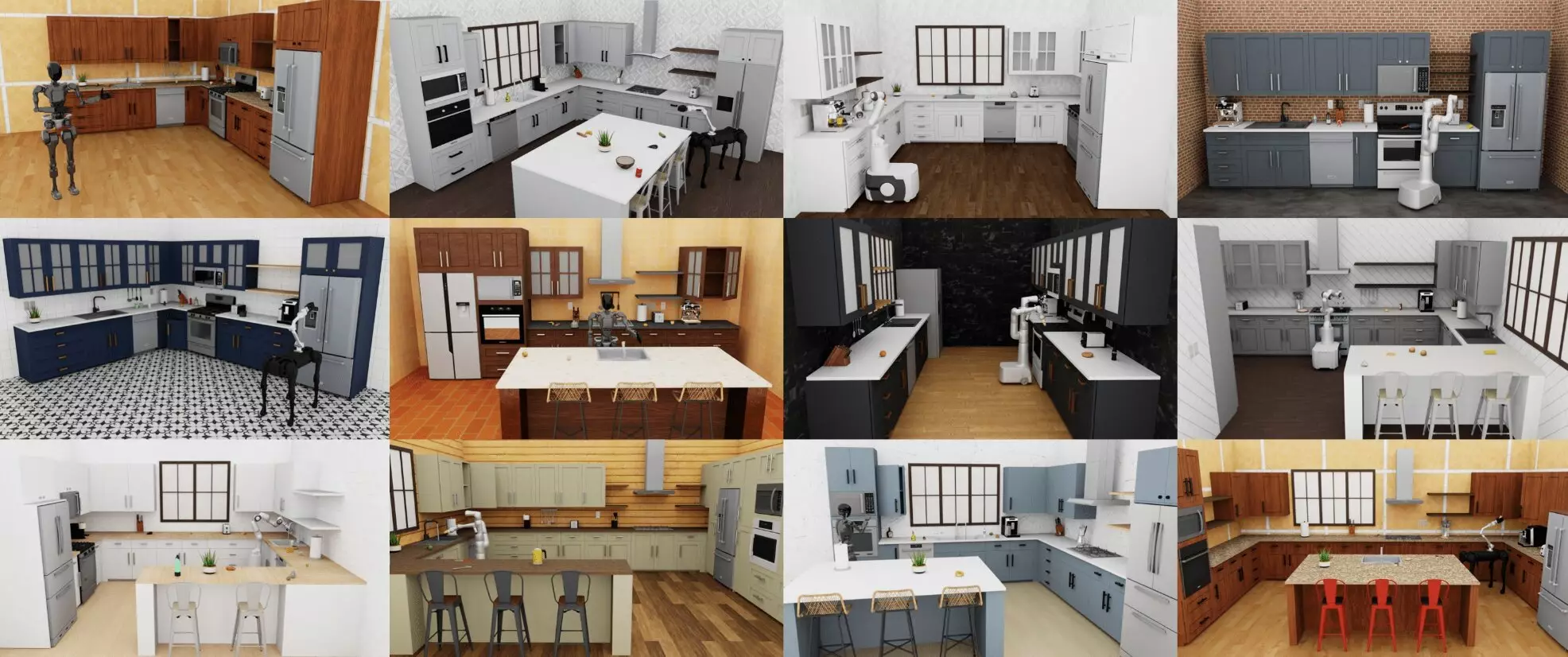Artificial intelligence tools, including natural language processing and computer vision algorithms, have seen significant advancements in recent years. One of the main reasons for this progress is the exponential growth of datasets used to train these algorithms. However, when it comes to training data for robot control and planning algorithms, the availability of such data is much scarcer. Acquiring training data for robotics applications is not as straightforward as gathering data from the internet for other AI tools. This scarcity has led some computer scientists to focus on creating larger datasets and platforms specifically tailored for training computational models for robotics.
In a recent paper pre-published on the arXiv server and set to be presented at the Robotics: Science and Systems 2024 conference, researchers from the University of Texas at Austin and NVIDIA Research introduced a groundbreaking platform called RoboCasa. RoboCasa is a large-scale simulation framework designed to train generalist robots to perform a variety of tasks in everyday settings. The lead author of the paper, Yuke Zhu, highlighted the significance of RoboCasa in providing high-quality simulation data essential for training robotics foundation models. The primary objective of the researchers was to develop an open-source simulation platform that could facilitate the training of robotics algorithms. Their efforts resulted in the creation of RoboCasa, an extension of the RoboSuite simulation framework they had developed previously.
RoboCasa boasts thousands of 3D scenes with over 150 different types of everyday objects, furniture items, and electrical appliances. The platform offers highly realistic simulations that have been enhanced using generative AI tools. The team behind RoboCasa designed 100 tasks for robotics algorithms to be trained on and provided high-quality human demonstrations for these tasks. Moreover, the platform includes methods to generate effective trajectories and motions that enable robots to complete these tasks. The combination of simulation data with real-world data has shown promising results, enhancing the performance of robots in real-world tasks. According to Zhu, scaling the machine-generated training datasets led to steady improvements in the model’s performance, showcasing the platform’s potential for training AI models effectively.
Initial experiments with RoboCasa have proven its value in generating synthetic training data that can be utilized to train imitation learning algorithms. The study demonstrates the effectiveness of simulation data in training AI models for robotics applications, underscoring the importance of platforms like RoboCasa in advancing the field of robotics. The open-source nature of RoboCasa allows other teams to experiment with the platform, fostering collaboration and innovation within the robotics community. Moving forward, Zhu and his colleagues plan to enhance the platform by incorporating more advanced generative AI methods to expand simulations further, capturing the diverse environments where robots are deployed.
The introduction of RoboCasa represents a significant breakthrough in AI algorithms and robotics training. The platform’s ability to generate high-quality simulation data for training robotics algorithms opens up new possibilities for developing generally capable robots that can perform a wide range of tasks in real-world scenarios. As the field of robotics continues to evolve, platforms like RoboCasa will play a crucial role in advancing the capabilities of robots and pushing the boundaries of artificial intelligence in robotics applications.


Leave a Reply